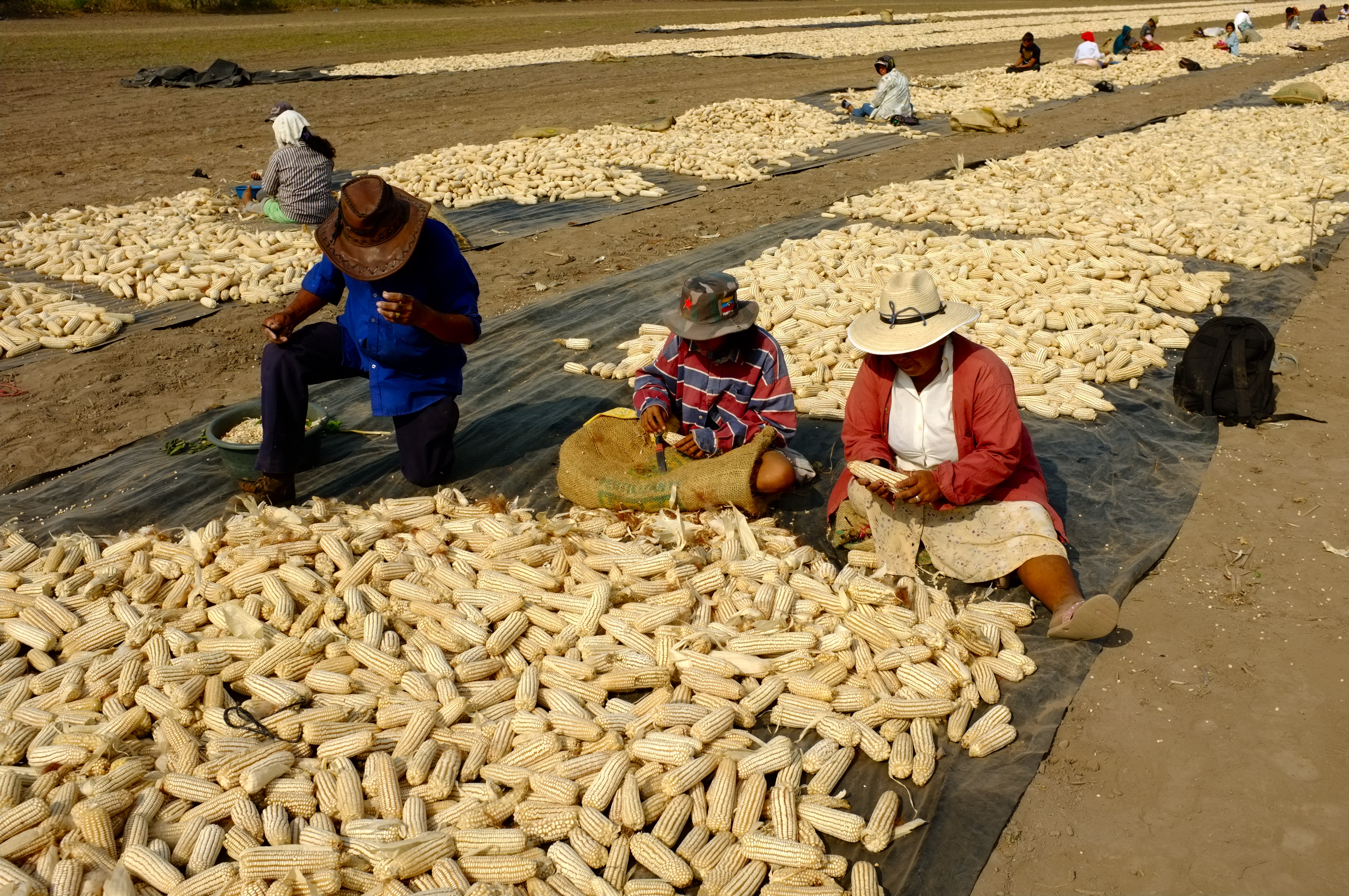Progress made on El Salvador deal

Politico | 1 July 2014
Progress made on El Salvador deal
The $277 million aid package moves closer to completion.
By DAVID ROGERS
Washington and El Salvador moved closer to agreement on a $277 million U.S. aid package Tuesday after the Obama administration took steps to defusea contentious trade dispute over a modest Salvadoran program to buy seeds for poor farmers.
Liberal Democrats in Congress had complained to Secretary of State John Kerry that trade and foreign aid officials were being too heavy-handed in their approach to the issue. And the controversy risked hurting the administration since it distracted attention from Washington’s bigger priority: anti-money-laundering legislation now pending before El Salvador’s legislative assembly.
The Millennium Challenge Corporation, a quasi-independent foreign aid agency, has been the prime actor in negotiating the five-year compact. And MCC’s nine-member board represents a cross-section of major departments and offices, including State, Treasury, USAID and the Office of the U.S. Trade Representative.
USTR took the lead in pressing Washington’s case on the seed program and potential violations of the Dominican Republic-Central America Free Trade Agreement. As recently as Sunday, U.S. trade officials said the issue was still open, and in a June 25 letter to the Salvadoran government, USTR indicated it had yet to see the full details of the latest proposal answering its concerns.
But on Tuesday, MCC and the U.S. Embassy in San Salvador both set a different tone, both signaling that El Salvador has shown real progress in answering the U.S. demands and it is time to move on.
“We are seeing commitment by El Salvador to complete their action plan,” said MCC spokesman John Gagain, when asked about the issue. “We are pleased that their government has provided assurances that it intends to pursue future corn and bean seed purchases under a mechanism that is transparent, competitive and compliant with Salvadoran law and CAFTA-DR.”
Gagain’s choice of words closely matched draft talking points for the U.S. Embassy on Tuesday. The net impact suggested the administration was cutting its losses after a sometimes embarrassing fight and hoped to steer attention back to the money laundering issue.
USTR can continue to play a role monitoring what bidding mechanism the government ultimately decides upon. But in its corner Tuesday night, there was also a level of acceptance.
“We’ve been engaged in productive discussions with El Salvador and have received acceptable assurances over the last month that they are working toward meeting the procurement goals they set out for themselves,” said a USTR spokesperson. “We see this as a positive step as MCC works with them to complete their full action plan.”
Certainly the money laundering issue has been a higher priority for Ambassador Mari Carmen Aponte in San Salvador, as well as for Sen. Patrick Leahy (D-Vt.), who has a major hand in writing the foreign-aid budget.
A Salvadoran official said Tuesday that his government hopes to act on that legislation next week. But there has been concern from Treasury that earlier drafts of the legislation did not go far enough to meet international standards.
The aid talks now are complicated politically by the fact that U.S. also wants the cooperation of the El Salvador government in addressing the flood of child migrants crossing the southwest border — unaccompanied by their parents or adult relatives.
Kerry traveled to Panama on Tuesday to meet with leaders of Central American countries about the crisis, and providing economic aid is part of the calculus. At the same time, Washington does not want to surrender its ability to demand reforms from El Salvador.
Given this challenge, haggling over trade rules for a program buying seeds for poor farmers was seen by many as a losing political hand.
Known as the Family Agriculture Plan, the seed program was begun in 2011 and is credited with helping thousands of low-income farmers improve production and the availability of food.
The trade fight arose from how the Salvadoran Ministry of Agriculture procures the seeds for distribution. Government contracts for seed purchases are estimated at about $30 million a year, and the question is whether units of U.S. corporations like Monsanto Co. are being cut out in the effort to buy more seed from smaller, Salvadoran producers.
Supporters of the program argue that the ministry is only seeking to allow small and medium producers to better compete, while fostering a sustainable seed industry inside El Salvador. Indeed, the government had agreed to remove barriers for international companies, but the USTR argued that major questions remained about due process and transparency in handling the bids.
“The United States should not exercise undue influence on El Salvador’s democratic political processes and policymaking to end the Family Agriculture Plan, which is providing essential support for small family farmers and national food security,” said Rep. Mark Pocan of Wisconsin, one of 16 Democrats who signed a letter to Kerry on Tuesday protesting the administration’s handling of the issue.
“El Salvador’s commitment to help lift their citizens out of poverty should be commended,” Pocan said. “We must continue to work together as partners with the Salvadoran people to help both countries achieve our shared goals.”
Joining Pocan in organizing the letter was Rep. Mike Honda (D-Calif.), who cited his experience as a Peace Corps volunteer in El Salvador during the 1960s.
“I have long supported El Salvador’s democracy and development,” Honda said. “Strengthening local capacity, independence and sustainability is at the heart of development.”





